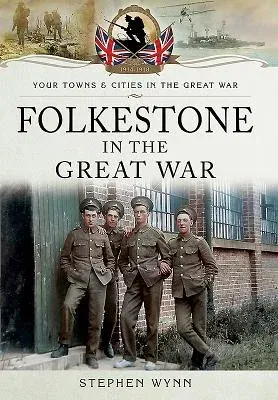Folkestone became one of the most important British towns during the
First World War. Through its harbor, an estimated 10 million troops and
nurses either departed from or arrived back in England between 1914 and
1919. For those leaving it was, for the most part, to fight on the
battlefields of the Western Front. For those returning, it was either
because they had been wounded or that they were coming home for some
well-earned leave.
Because of its geographical location along the south coast, the town was
always going to be heavily involved in the course of the war.
Shorncliffe camp saw the arrival of Canadian soldiers, infantry who had
come to practice in its purpose-built trenches, and cavalry units who
put their horses through their paces on its open grounds. As well as
this, there was an influx of Belgian refugees who arrived in the town,
having escaped the tyranny of an advancing Germany Army. Most stayed for
the duration of the war, enjoying the hospitality and friendship of
local people who had taken them in with open arms.
With the town being a hive of military activity, the people of
Folkestone went about their business as best they could. For many this
included worrying about the well-being of a loved one who had gone off
to fight in the war, hoping that they would remain safe but not knowing
if they would ever see them again. It wasn't just on the Western Front,
however, that death reared its ugly head. On one occasion it happened in
Folkestone, in what has become known as the Tontines Street Air Raid.
Seventy-one men, women and children were killed and another ninety-four
were injured this German air raid, which took place on 25 May 1917. This
book is a poignant testimony to those people as well as the men who
didn't make it back

